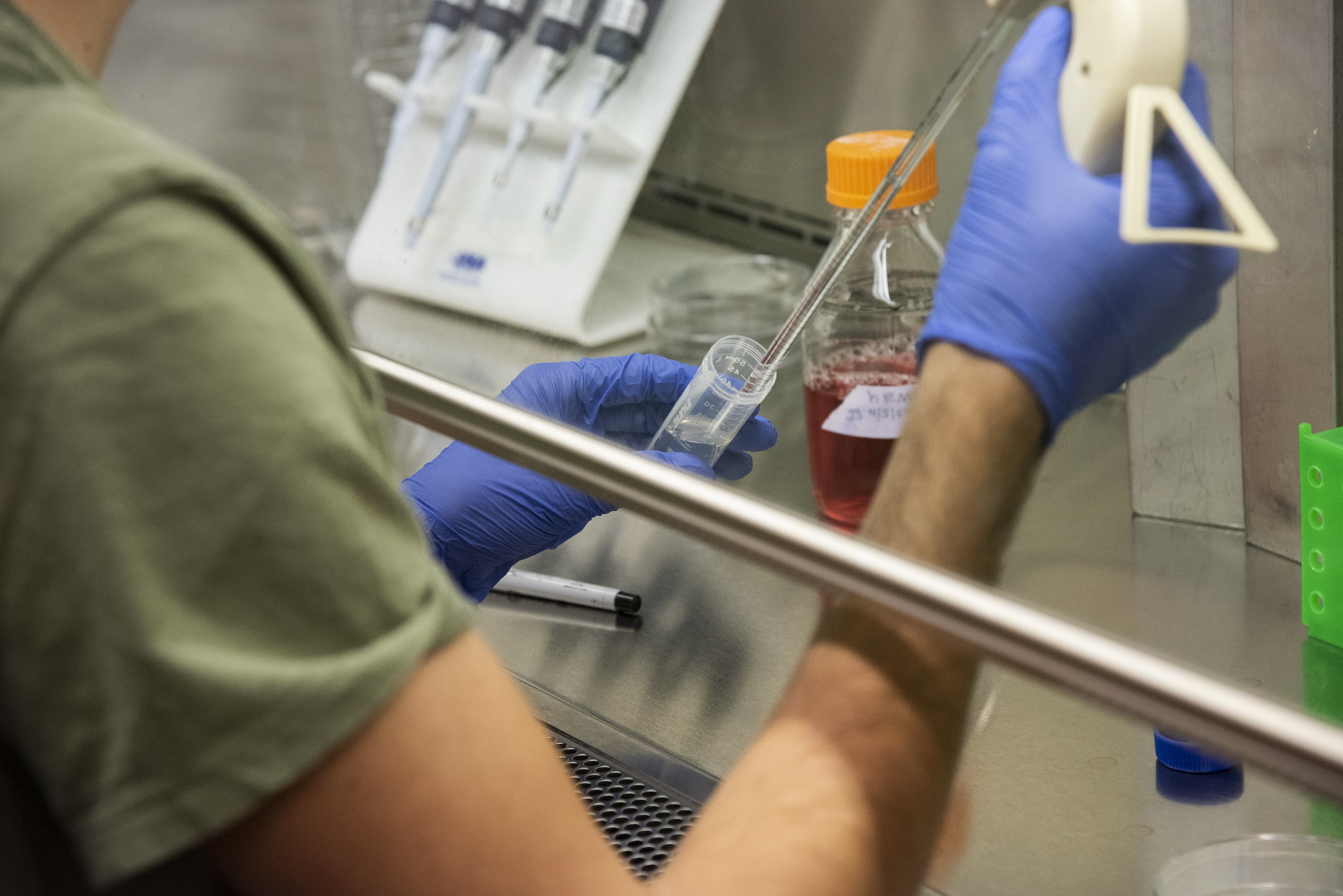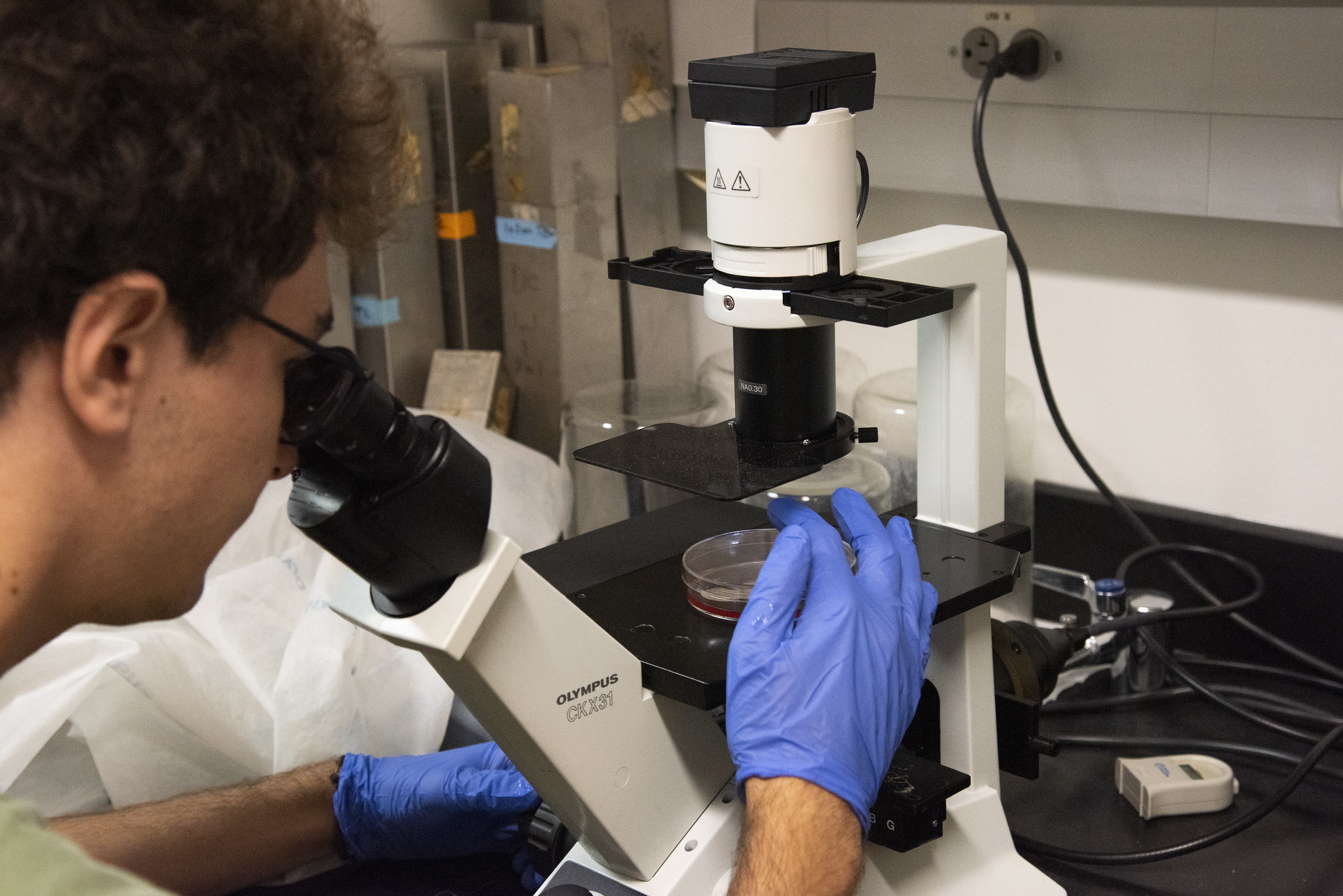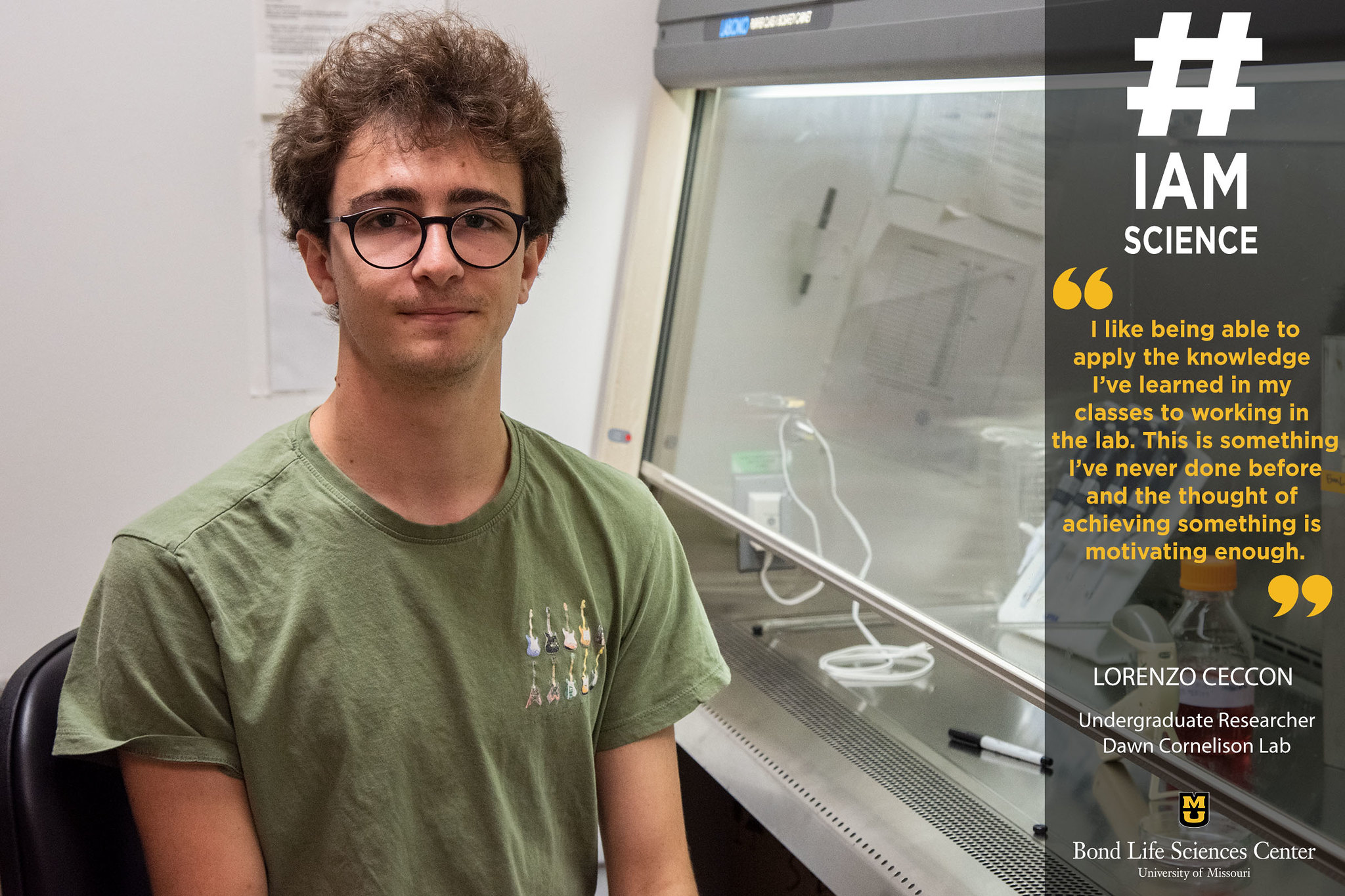Lorenzo Ceccon wanted a career full of methodical problems for him to try and solve.
“I like science because it is a very logical thing. A + B = C,” he said. “It’s very systematic, so I guess I just like finding the answers to the questions I wonder about.”
The senior biology major put his pursuit of logic to work when he joined the Dawn Cornelison lab as an undergraduate researcher at Bond LSC, but he found himself in that same reasoning mindset growing up.
Originally from Arezzo, Italy, Ceccon attended a high school focused entirely on science and how it is applied. Instead of a traditional U.S. high school where a degree is completed in four years, Italy’s five-year high school experience gave Ceccon the time he needed to figure out what he wanted to pursue. He had the same science professor throughout all five years, which laid the foundational framework for a career in research.
At Bond LSC, a day in the lab exercises that foundation for Ceccon. He uses siRNA – small interfering RNA – to control gene expression with a system that temporarily blocks the copying of mRNA, so that he can target the mechanism of a particular type of cancer, known as Rhabdomyosarcoma (RMS).

Ceccon replates cells, begins to count them and makes sure to add siRNA so that once the solution is set a machine can allow the siRNA to get into the cell. After some time, a second experiment is performed to assess if the cells that traded with siRNA still respond to the treatment. This procedure is to understand if the kicked down protein, or the one that is temporarily deactivated, is involved in the process that allows this system to work. He uses an immunofluorescence technique, which utilizes a fluorescence microscope in order to visualize for any antibodies in the cell samples that target specific markers, or a DNA sequence with a particular location in the genome. He uses this tool to make sense of the changes the cells undergo with each treatment. The antibodies used in this process to target the markers of interest are modified so that when a light with a specific wavelength hits them they shine brightly.

In the Cornelison lab, the Eph-ephrin system, a signaling system involved in many biological functions, is used to study many different aspects of life. Ceccon uses this system to promote a change of the observable characteristics of the RMS cells and stop the uncontrolled cell reproduction which makes the cancer deadly.
“I like being able to apply the knowledge I’ve learned in my classes to working in the lab because it makes me feel like I didn’t waste time studying all of those hours,” Ceccon said. “Working in the lab is something I’ve never done before, and the thought of achieving something is motivating enough.”
As a whole, the Cornelison lab works to constantly increase their understanding of this cancer’s physiology.
“I love this type of work! I like the problem-solving aspect, and how we always find something new to do,” he said. “I enjoy learning about the processes that allow life to exist.”
Back in Italy, Ceccon played piano or guitar, but he has not been able to ship those items to the U.S., yet. For now, Ceccon enjoys playing sports or going on hikes with his friends when he gets away from the lab. He also likes to delve into philosophy books or read science fiction novels from time to time. These activities help distract him from lab work or studying for his next test.
“Philosophy was one of my favorite subjects in high school,” Ceccon said. “It helped me learn how to reason and produce logical statements, and I like to read about topics that make me think.”
What motivates Ceccon is not just the answers he gains in the lab but also the variables he accounts for along the way. He hopes to be part of a paper on the RMS findings he works toward in the Cornelison lab then he wants to attend medical school to learn even more about this disease and others.
“There’s always a new challenge to face,” he said. “I just have to sit down and think of what’s going wrong when that happens, talk to others in the lab about it, and decide what to do next.”


